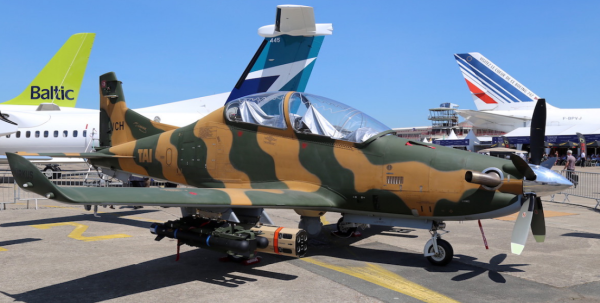TSAMTO, April 28. According to the Turkish company Turkish Aerospace Industries (TAI), soon it expects to sign the first export contract for the sale of light combat/ training aircraft "Hurkus-C" to an unnamed state.
According to the Daily Sabah, referring to the statement of the general manager of TAI Temel Kotil to the private TV company CNN Turk, the company plans to sell 12 Hurkus-C aircraft to the first foreign buyer. The country of the customer is not disclosed, as the contract has not yet been signed.
The head of the company is also optimistic about the possibility of exporting T-129 ATAK reconnaissance and attack helicopters to the Armed Forces of the Philippines, subject to obtaining permission to export engines from the United States. Meanwhile, according to him, an agreement has already been signed with Ukraine on the purchase of engines for the T-929 ATAK-2 helicopter.
As reported by TSAMTO, the development of the Hurkus TCB line began in March 2006, when the Turkish Defense Industry Secretariat (SSM) signed a corresponding contract with TAI.
The roll-out of the prototype of the basic version of the Hurkus-A TCB took place in June 2012, and on August 29, 2013, it performed its first flight.
On December 26, 2013, the SSM secretariat signed a contract for the serial production of two more versions of the Hurkus TCB. The agreement provided for the production of 15 Hurkus-B units equipped with advanced military avionics of the national company Aselsan. The contract contained an option to supply 40 additional TCBMs. The agreement also included the development of a concept design for an armed version of the Hurkus-C, designed for reconnaissance and air support.
Flight tests of the first Hurkus-B began in January 2018. Implementation of the Hurkus-C program began on November 28, 2016, and the prototype was demonstrated in February 2017 with UMTAS anti-tank guided missiles and Roketsan's CIRIT laser-guided missiles. On April 7, 2017, the Hurkus-C prototype completed the first launch of the L-UMTAS ATGM at a ground target.
Equipped with seven suspension points, the Hurkus-C can carry 1,500 kg of payload and use a variety of nationally produced ammunition, including UMTAS ATGM, 70 mm CIRIT laser-guided missiles, KGK-SIHA-82 glider bombs, and free-fall bombs equipped with Teber laser INS / GPS guidance kits. In addition, the aircraft can carry free-falling bombs, 12.7-mm and 20-mm container weapons systems.

